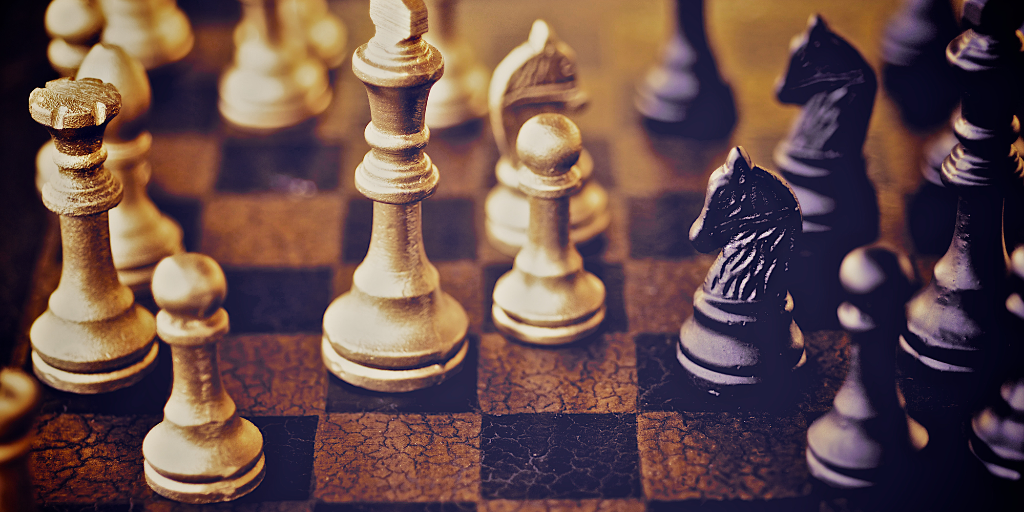An ancient game has never been more popular: how chess has changed over the years
Lesson summary
Hi everyone, I’m Jeff and this is Plain English lesson number 512. JR is the producer and he has uploaded the full lesson to PlainEnglish.com/512. There you will find the full transcript, video lesson, exercises, translations, and more. PlainEnglish.com/512.
Coming up today: Part one of a two-part lesson on chess. Today, we’ll talk about the history of the game, where it started, how it evolved, and some key moments in history. And on Thursday, we’ll talk about a bombshell cheating allegation that has divided the chess world in two.
In the second half of today’s lesson, we’ll talk about the English expression “tailor made.” And we have a quote of the week. Let’s get going.
How chess has evolved over the years
Chess is one of the world’s oldest games. The earliest form originated in India in the sixth century. The pieces looked a little different and some rules were different, too. Chess historians believe that a player could win by simply capturing all the pieces on the board other than the king. Queens and bishops had fewer powers, too. But the game played one thousand five hundred years ago was remarkably similar to the game played today.
Over the centuries, the game spread from India to Persia, then to the Arab world, then Asia, and to Europe, where it was embraced by the aristocracy. Chess became something of a rite of passage for the aristocracy and nobility. It was considered an essential skill for developing warriors and nobility. It also led to gambling and violence.
Europeans changed some rules to make the game faster; they changed the names and shapes of the pieces; and they started to study chess strategy: what combination of moves at the beginning and end of games could lead to victory?
But chess was done evolving. For many hundreds of years, the game itself did not change, but the way it was played did change. Competitive chess emerged in the nineteenth century, when there were chess clubs, tournaments, and new variations like speed chess, where each move has to happen quickly.
Perhaps the most famous chess tournament was the 1972 World Chess Championships in Iceland. American Bobby Fischer beat Soviet Boris Spassky in a proxy battle of the Cold War. The games were shown live on American television and interest in chess surged.
And then a modern invention shook the foundations of this ancient game: computers. A chess player has to think multiple steps ahead, considering the impact of every move. If I make this move, then how would my opponent respond? If he makes that move, then what can I do next? The possibilities may not be endless, but there are billions of possibilities. This seems tailor-made for computers, which can do many calculations in just a short time.
When I was a kid, the debate raged about whether a computer could beat the world’s best chess players. In 1996, Gary Kasparov, the world’s reigning chess champion, squared off against Deep Blue, an IBM computer bigger than a refrigerator. It weighed 1.6 tons and had been built specifically to play chess. It could evaluate millions of potential moves per second.
Still, Kasparov was better. He won four out of six games in the competition. Man had triumphed over machine.
This victory, however, was short-lived . The next year, Kasparov and Deep Blue met again. The programmers at IBM had improved the computer in the meantime. In this competition, Deep Blue won three games and fought to a draw in one game. The era of human dominance over chess was over.
This seems quaint today. Today , any person can open a smartphone app and have the power to beat even the world’s best player. Chess has lost a lot of its mystique.
But what is has lost in mystique it has gained in accessibility. Chess.com is the most popular platform for competitive chess. Every month, 17 million users log on to play games on Chess.com. Players can train themselves against the computer. They can also find human opponents for live, online gameplay. Success online can lead to tournament invitations and success in over-the-board games.
During the pandemic, with everyone in lockdown, interest in old games surged—and chess is one of the oldest of them all. At the same time, a Netflix series about a female chess champion came out. “The Queen’s Gambit” dropped at just the right time for the modern resurgence of chess.
But there is a darker side to chess’s modern age: cheating. And that’s what we’ll talk about on Thursday’s lesson.
Becoming a grandmaster
I read that most chess grandmasters start the game very young, many of them start playing at age three. Certainly they’re playing chess by seven years old. It’s just incredible…you have to learn the game, the strategy, the way of thinking very early while your brain is still developing, if you want to compete at the highest level. People can reach their peak performance very early; a lot become grandmasters when they’re teenagers and the best chess players in the world can hit their peak in their twenties.
You often think about athletes hitting their peaks relatively young, like in their mid-twenties. But it’s surprising to think that the same thing is true for chess players.
Great stories make learning English fun

